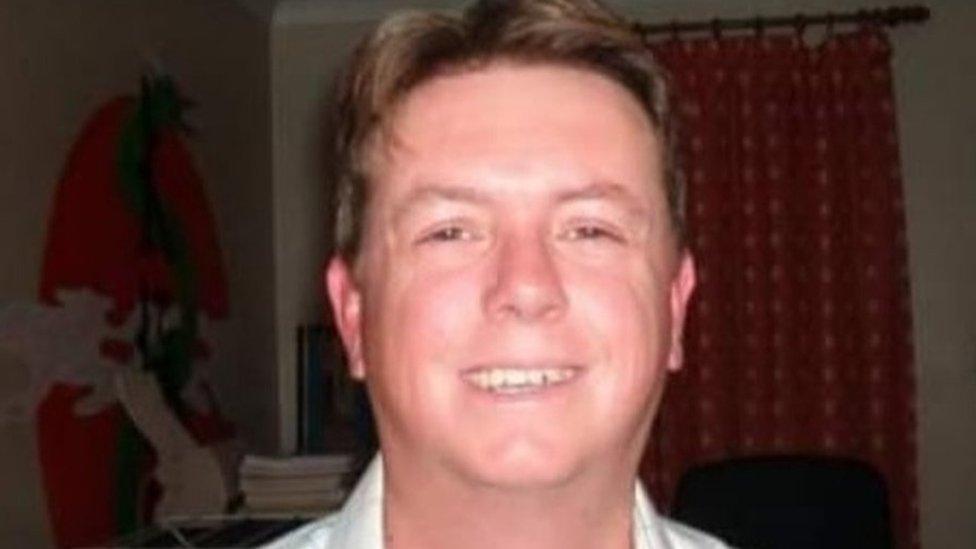Peterborough City Hospital: Doctor failed to consult over care withdrawal
- Published

Dr Gregg worked at Peterborough City Hospital
A consultant anaesthetist failed to seek the opinion of a colleague before withdrawing active treatment from a patient, a misconduct panel found.
The patient, who had alcoholic liver disease, died in 2013 at Peterborough City Hospital, where Dr Andrew Gregg was working.
A panel also found Dr Gregg had said words to the effect that the patient was "a drain on the hospital and NHS".
He previously admitted increasing drug levels in prescriptions in patients.
Dr Gregg worked for North West Anglia NHS Foundation Trust from 2003 but was suspended in 2016 and subsequently dismissed from the trust in 2019.
The patient with alcoholic liver disease, known as "Patient O" by the tribunal was being treated in March 2013, and the panel said the evidence demonstrated his health "was not, at that time, in relentless decline".
"In those circumstances the tribunal found that it was incumbent on Dr Gregg to consult his colleagues on the question of withdrawing active treatment," the panel said.
It found he "failed seek the opinion of a colleague in Intensive care or a consultant gastroenterologist... before withdrawing active treatment."
The panel found that two days before the decision to withdraw active treatment had made a number of "comments of an inappropriate nature" about the patient to a nurse.
They includes word to the effect that the patient was "a hopeless alcoholic", had "used up all his chances", was "a drain on the hospital and NHS" and said "we shouldn't waste time on him".
He had also been accused of hastening the death of "Patient A", who the BBC understands to be 41-year-old Simon Scott.

Simon Scott died with acute myeloid leukaemia in January 2016
Mr Scott, from Oakham in Rutland, died with acute myeloid leukaemia on 4 January 2016.
The panel "accepted the agreed opinion of the experts that when a decision is made to increase doses of sedative drugs in the context of end-of-life care, as Dr Gregg did with Patient A, then a natural consequence of giving such doses is that it may hasten the patient's death".
"The tribunal found that it was not inappropriate for Dr Gregg to have increased the infusion rates and administered the additional boluses, notwithstanding that they necessarily hastened Patient A's death."
The Medical Practitioners Tribunal Service hearing has been adjourned until 15 August.

Find BBC News: East of England on Facebook, external, Instagram, external and Twitter, external. If you have a story suggestion email eastofenglandnews@bbc.co.uk, external
Related topics
- Published11 January 2022

- Published15 December 2021
